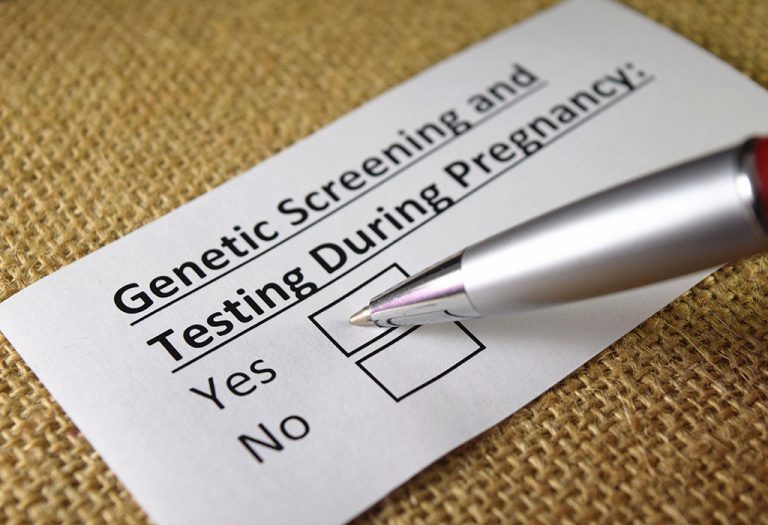Pregnancy Brain – When it Starts & How to Deal
If you are pregnant and have been having days when you are unfocused, seem very distracted or forgetful even about simple things, then you’re not alone. Many women find that they tend to forget certain things, and their memory seems to have failed them during pregnancy. While it may seem frustrating, pregnancy fog is completely normal and often linked to hormonal shifts, sleep deprivation, and the body’s adjustment to pregnancy. But when does pregnancy brain start, and how can you manage it effectively? In this article, we’ll learn the causes, timeline, and tips to help you stay sharp and focused throughout your pregnancy.
What Is Pregnancy Brain?
Pregnancy brain means forgetfulness, mental fog, or trouble focusing during pregnancy. Also called as baby brain or momnesia, it is a common occurrence. It isn’t something to worry about and may even have a purpose. It is found that pregnancy brain helps the mother bond with her baby. Studies have found that during pregnancy there is increased activity in the right side of the brain which is associated with emotions, as opposed to the left side of the brain which is linked to logic. This may be in preparation for the mother to help understand her baby’s needs better. It also explains to an extent, why ‘pregnancy brain’ occurs (1).
Is Momnesia a Myth or a Fact?
Momnesia or pregnancy brain is a fact. It is caused due to several reasons, and many women go through this during pregnancy (2).
When Does Pregnancy Brain Start?
Pregnancy brain can start as early as the first trimester, around week 7 or 8, but is often more noticeable in the second and third trimesters, as body undergoes more significant changes (3).
What Causes Pregnancy Brain?
Apart from the fact that the brain is preparing you to bond better with your baby, memory issues during pregnancy have a few other causes (3) (4).
- Hormonal changes during pregnancy cause a lot of changes in the body. During pregnancy, your body releases a host of hormones including progesterone, oestrogen, human chorionic gonadotropin (HCG) and oxytocin. These hormones are essential as they signal the brain to enable contraction in the uterus and promote milk production. As they do this, they also affect several neurons in the brain, which may be a reason for the lack of memory.
- Lack of sleep may also be a reason for baby brain. Once you are pregnant, you will need to make more trips to the bathroom as your uterus will be pushing against your bladder. This means waking up in the middle of the night quite often. To add to this, you will also face constant pain in the form of cramps, heartburn, swollen feet, etc. Sudden hunger pangs may also wake you up at unusual times.
- Stress, anxiety and the fact that you are carrying all that extra weight around may make your brain extremely tired, which can also contribute to bad memory during pregnancy.
What it Feels Like to Have Momnesia?
Momnesia may feel different to different women but is most often characterised by memory loss. You may walk into a room multiple times in a day and forget what you went in there for, or you could forget where you have left your things or what you said just a few minutes ago.
How Long Does Pregnancy Brain Last?
Pregnancy brain can last throughout pregnancy and sometimes continues postpartum due to sleep deprivation and hormonal shifts. While most women notice improvement within a few months after birth, some may experience mild brain fog for up to a year postpartum, especially if breastfeeding (1) (3).
How to Deal With This Situation?
Although there isn’t a clear-cut answer as to when pregnancy brain starts, you can take a few steps to help yourself during this confusing period (2) (3) (4).
- Write things down: The minute you think of something that you need to do, write it down so that even if you forget it, you can always check your notebook or phone.
- Store important things at a specific spot: Keys, phones, and things you need on an everyday basis should be designated to a specific spot.
- Set alarms: If you need to remember a date or an event, set the alarm on your phone.
- Take photos: If you go out and park your car, click a photo to help locate your car when you get back.
- Sleep well: Take naps as and when you can afford to. A well-rested brain may make things easier.
- Exercise regularly: Follow a routine of approved exercises to keep your memory sharp and keep you alert.
- Prioritise: Simplify your tasks and prioritise what is important. Try not to do multiple things at once as it will be all the more confusing and will frustrate even more.
- Seek help from your family: You can always ask your family and partner to lend a helping hand with chores or help you remember certain things.
- Relax: Stress can make things worse. Relax and accept that this is normal so that your brain isn’t overworked.
- Include choline-rich foods: Choline promotes the production of a memory formation chemical in the brain called acetylcholine. Eggs, soy milk, nuts, citrus fruits, milk, etc., are a good source of choline.
- Eat food rich in omega 3 fatty acids: These acids found in eggs, fish, etc, are known to help in the proper functioning of the brain as well as its development. It is excellent for the development of your baby too.
FAQs
1. Does pregnancy brain affect everyone?
Not all women experience pregnancy brain, and symptoms can vary. Some notice only slight forgetfulness, while others report significant difficulty with focus and memory.
2. What else can forgetfulness be a sign of during pregnancy?
Forgetfulness paired with other symptoms like lack of interest in things, feeling of guilt, having trouble sleeping or excessive sleep, can be a sign of depression. If you constantly feel like your mood is unusually low, reach out to your doctor and seek help (5).
3. Does pregnancy brain have any long-term effects?
No, pregnancy brain does not cause permanent memory loss. Cognitive function typically returns to normal within a few months to a year postpartum.
Forgetfulness in pregnancy is common and happens to almost every woman. It is important that you remind yourself that mom brain is not your fault and is entirely natural. This can prevent any feeling of frustration during instances when you are feeling unusually low. Brain fog in pregnancy is a short-term condition, and you will overcome it once you deliver. However, it may take a few days after delivery for your brain to settle and memory to return to its original state. Remember not be too hard on yourself and enjoy your pregnancy as much as you can.
References/Resources:
1. Inspira Health – Pregnancy Brain: Is it Real or All in Your Head?
2. AKRON CHILDREN‘S – Pregnancy brain: Is that a real thing?
3. HAWAII PACIFIC HEALTH – The Realities of Pregnancy Brain
4. Is ‘pregnancy brain’ real or just a myth? – The University of Texas Southwestern Medical Center
5. NHS – Depression in pregnancy
Also Read:
Dealing with insomnia during pregnancy
Most Common Myths & Facts about Pregnancy
Warning Signs in Pregnancy You Should Be Aware Of
List of Infections That Can Affect a Pregnant Woman
Common Problems During Pregnancy and Their Solutions
Was This Article Helpful?
Parenting is a huge responsibility, for you as a caregiver, but also for us as a parenting content platform. We understand that and take our responsibility of creating credible content seriously. FirstCry Parenting articles are written and published only after extensive research using factually sound references to deliver quality content that is accurate, validated by experts, and completely reliable. To understand how we go about creating content that is credible, read our editorial policy here.




































